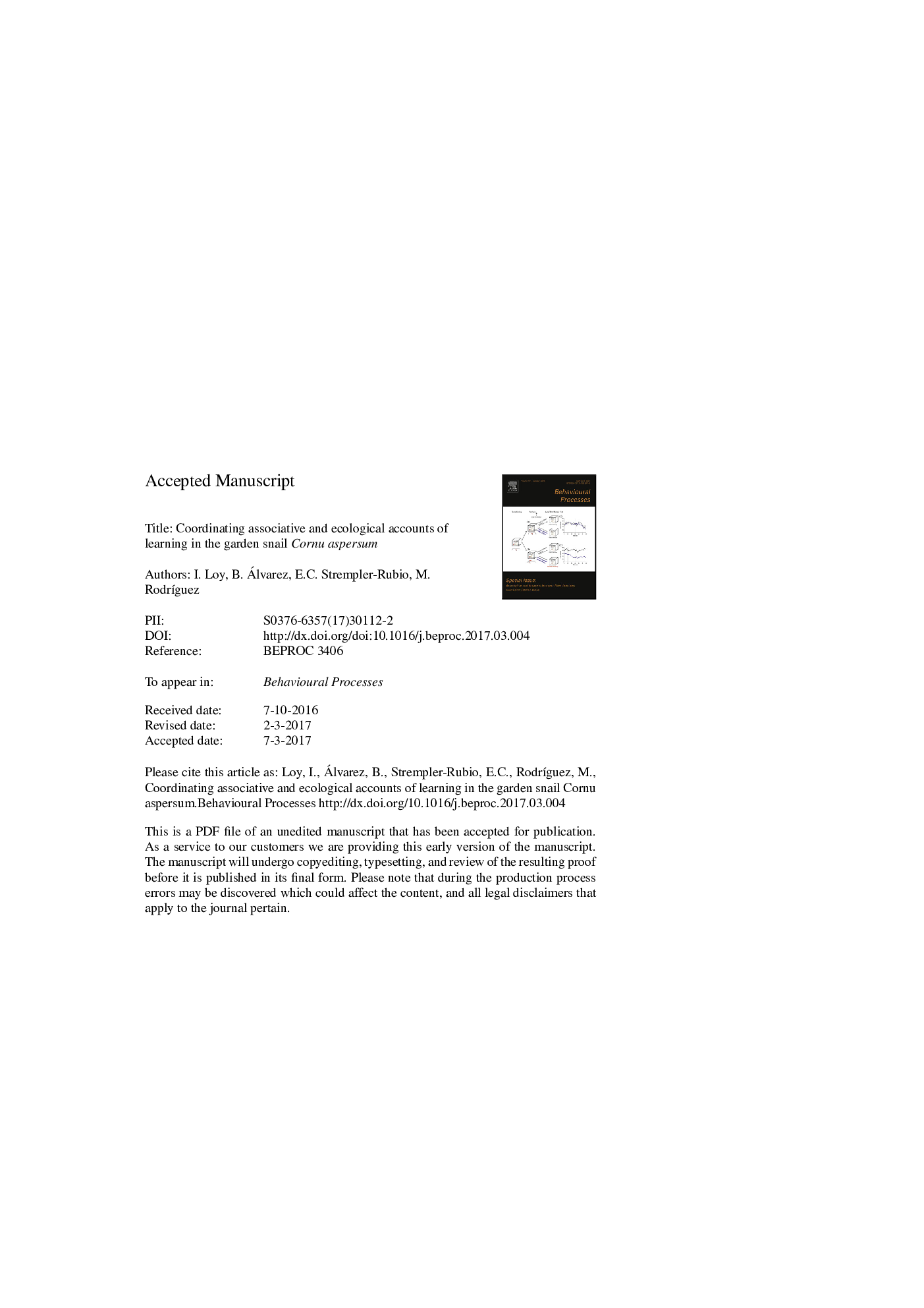| Article ID | Journal | Published Year | Pages | File Type |
|---|---|---|---|---|
| 5539670 | Behavioural Processes | 2017 | 28 Pages |
Abstract
Pavlovian conditioning of tentacle lowering in the snail, Cornu aspersum, as an instance of associative learning, has proven effective to show evidence of paradigmatic associative phenomena (e.g., blocking) explained by current models of conditioning. Nevertheless, the available literature questions the biological function of the conditioned response (i.e., tentacle lowering) in snails since no advantages in terms of food finding had been observed. Ecological accounts of learning claim that learning abilities contribute to the adaptation to the environmental demands, and there is experimental evidence supporting this in several species (e.g., grasshoppers, fish, or antlions). However, there is a lack of evidence in snails, which is surprising given that the conditioned response of tentacle lowering is a robust finding that fits in with several predictions of associative learning theory (e.g., blocking or conditioned inhibition). The goal of this manuscript was to test whether food detection is affected by prior experience with the food, distance, and conditioning. We found that prior experience with a food source is necessary for snails to locate the same food item; that the optimal distance to test for food detection is between 5 and 7Â cm and that snails seem to use different food searching strategies after conditioning depending on the stimuli that are present. The data provided constitute a small contribution to the vindication of a greater coordination between the fruitful research tool provided by the associative account of learning and the evolutionary vocation of the ecological approach of learning.
Related Topics
Life Sciences
Agricultural and Biological Sciences
Animal Science and Zoology
Authors
I. Loy, B. Álvarez, E.C. Strempler-Rubio, M. RodrÃguez,
